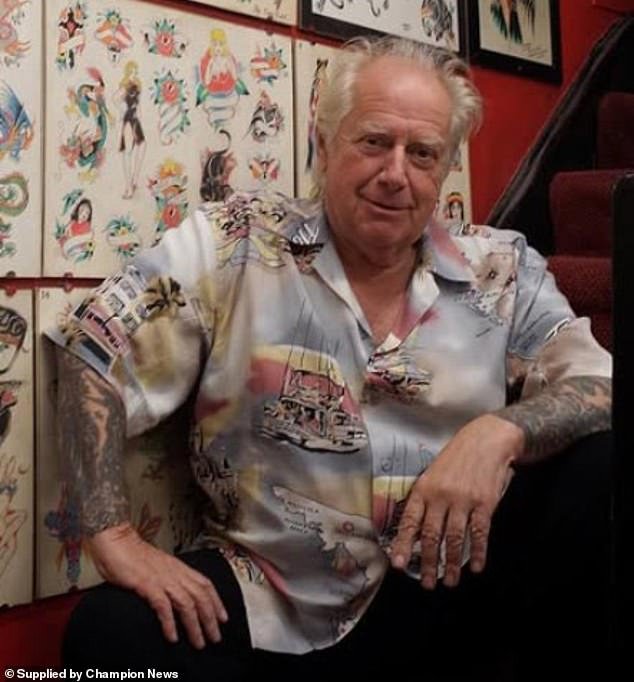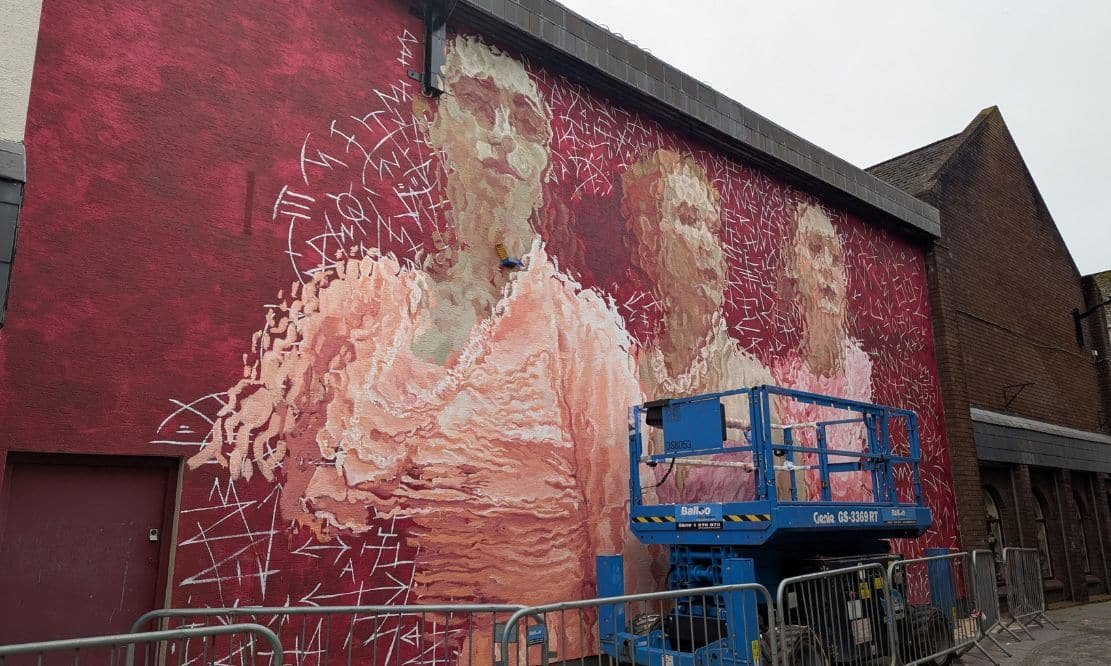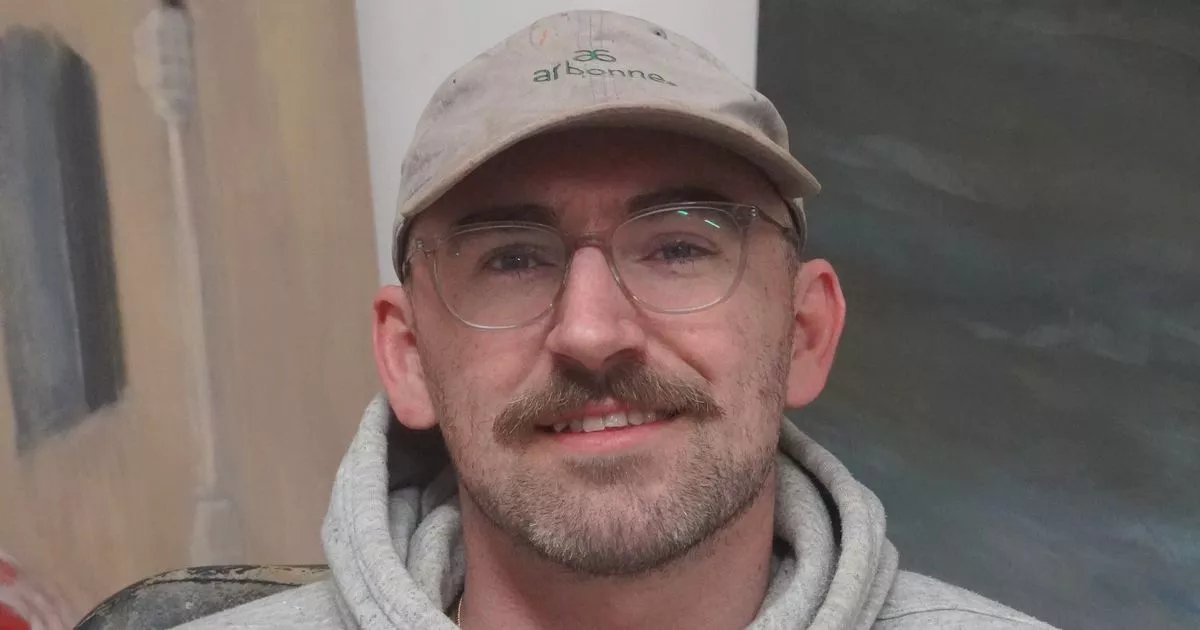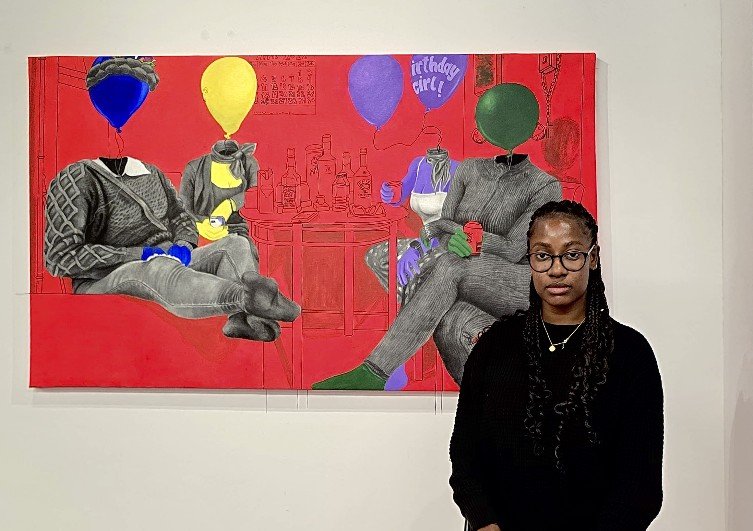The widow of a legendary tattoo artist who became the Queen’s handyman has beaten his ‘secret’ daughter in a bitter inheritance fight worth more than £400,000.
Dennis Cockell, who shot to fame as a rockstar ink artist in the 1980s London music scene before transitioning into an ‘odd-job’ man at Buckingham Palace, left behind a £413,000 estate when he died aged 74 in 2022.
But the six-figure fortune soon became the object of a High Court battle between his wife and mother of five of his children, Fong Yuet Cockell, 65, and a daughter in Australia who she had no idea existed.
Cindylee Cockell, 57, claimed to be the tattooist’s child and proved the assertion through DNA testing.
She then launched a claim against Fong, and her half-sister Natalie, for a £42,200 payout from her father’s estate, as well as a valuable sheet of his tattoo flash which is worth thousands.
A flash is a pre-designed artwork displayed in parlours for customers to choose from.
Before this, everything he had – including his share of the £900,000 family home in Mill Hill, north London – had been handed to Fong.
But mother-of-three Cindylee, who said she was her ‘dad’s biggest secret’, claimed she needed a payout because the ‘overwhelming grief’ of his death left her too depressed and anxious to work.

The widow of Dennis Cockell, pictured, a legendary tattoo artist who became the Queen’s handyman, has beaten his ‘secret’ daughter in an inheritance fight worth more than £400,000

His wife and mother of five of his children Fong Yuet Cockell, pictured, has held onto his estate after a High Court judge ruled against the tattoist’s ‘secret’ daughter
A judge, Deputy Master Timothy Bowles, has now rejected her claim after finding her father had ‘no estate’ to give.
Although valued by his family at over £400,000, his estate was only worth a ‘few hundred pounds’ because his share of the north London home went automatically to Fong as joint owner.
This comparatively small amount had then been slashed by funeral and probate costs.
The judge said he could make a special order under the 1975 Inheritance Act, taking part of Fong’s property and using it to provide for a payout to Cindylee.
But he added it would be ‘wrong’ to deprive the pensioner of any part of that property in favour of a step-daughter she had known nothing about, because she needed the cash to fund her retirement.
‘She owed and owes her no obligations of any kind and I can see no good reason at all, therefore, to deprive Mrs Cockell of any part of her property in favour of Cindylee Cockell,’ the judge said.
Even if his share of the house had gone into his estate, Mr Cockell would have been entitled not to leave his daughter anything, the trial heard.
Judge Bowles added: ‘It is not, in itself, unreasonable for a testator to make no provision for an adult child, son or daughter, even one in modest circumstances.’

Mr Cockell pictured making a tattoo design. He shot to fame as a rockstar ink artist in the 1980s London music scene before transitioning into an ‘odd-job’ man at Buckingham Palace

The tattooist, right, pictured with Brian Setzer, singer-guitarist of Stray Cats
Fong needed the entire value of the former matrimonial home so she could downsize and ‘restructure’ her life after the death of her husband, he continued.
‘This was a property that she and her husband had worked to acquire and to deprive her of any part of the property or its value and to require her to further rearrange her life in favour, in her case, of someone of whom, in her husband’s lifetime, she was wholly unaware and to whom she owes no obligations of any sort would, quite simply, be wrong,’ the judge added.
‘I do not wish to diminish her relationship with her father.
‘I entirely accept that it was important to her and, given that, albeit secretly and behind the back of his wife and children, Mr Cockell persisted in his relationship with Cindylee Cockell over many years, I accept that it must have been of some importance to him, also.
‘Cindylee Cockell has undoubtedly been disappointed in her hopes and expectations, whether realistic or otherwise, that she might have been enabled to start a new life in the United Kingdom.
‘That, however, does not mean that Mr Cockell came under any obligation to make reasonable provision for her from his estate, or to reduce the provision in his wife’s favour in order to accommodate a gift to Cindylee Cockell.
‘Cindylee Cockell was not dependent upon Mr Cockell and while, had resources been plentiful, it would have been perfectly reasonable for Mr Cockell to make some disposition in her favour, it was certainly not, given the circumstances obtaining in respect of his wife and his obligations to her, unreasonable to make no provision for her.’
Originally from Worcester, Mr Cockell shot to fame in 1980s London after tattooing stars including The Sex Pistols’ Steve Jones, TV presenter Paula Yates and punk rockers 999 and Adam Ant.

Although valued by his family at over £400k, his estate was only worth a ‘few hundred pounds’ because his share of the north London home went automatically to Fong, pictured with daughter Natalie, as joint owner
His first London studio was on Finchley Road and he later set up ‘Diamond Jack’s’ in Soho close to the Raymond Revue Bar.
He married Fong in 1982 and the pair had five children, starting a family together in their Mill Hill house.
After retiring from full time tattooing in 2007, Mr Cockell took on another role as an ‘odd-job man at Buckingham Palace’ during the reign of Queen Elizabeth II until his death.
He was being paid £14,500 a year for his efforts towards the upkeep of the Royal estate, the widow’s barrister Nicholas Michael told Judge Bowles.
But unknown to his wife, he had a child already from a previous relationship, Cindylee, who London’s High Court was told claims he had promised to move from Australia to London and support financially prior to his death.
Giving evidence via a videolink from Sydney, where she lives, earlier this year, Cindylee told the judge she had been two years old when she learned that Mr Cockell was her father.
She had visited him in London four times before his death and the pair had made plans that she would move to the city and take a £23,000 a year job in one of his tattoo parlours as a receptionist once her three children had finished school, she said.
Cindylee had formerly worked as a nanny and a PA but is now on ‘Australian Jobseekers Allowance’ having been signed off by her doctor as incapable of working for ‘years’ due to severe ‘anxiety and depression’.

Pictured: one of Mr Cockell’s tattoo flashes. A flash is a pre-designed artwork displayed in parlours for customers to choose from
She said her mental health battles have been triggered by the death of her father – followed shortly by that of her mother a few months later.
Cindylee told the judge that she needs the money from her father’s estate because he promised to support her, is incapable of looking after herself by working at the moment and has ‘exhausted’ her savings.
But Mr Michael, for Mr Cockell’s widow, denied she is incapable of work and also insisted the estate owes her nothing.
He said that Fong had been forced to sell the £900,000 house she shared with Mr Cockell because she could not afford to keep it on after his death and the expenses of downsizing have left £413,000 in the estate which she now needs all of to live.
‘Fong is registered disabled and suffers depression,’ he said. ‘She is too old now to work.
‘Fong, who is the sole beneficiary, was in a long marriage with the deceased and they were dependent on a joint income and latterly on the deceased’s pension.
‘Fong’s income is plainly inadequate and does not match her needs. A successful claim would force Fong to sell her home.
‘The deceased had no obligations and responsibilities towards Cindylee, but was married to Fong and she depended on the deceased financially and emotionally.
‘Fong was unaware of Cindylee prior to the claim and required her to prove that she is the biological daughter of the deceased.
‘Cindylee is an adult who is either in work or is capable of finding work and in fact working and there is no cogent or reliable evidence to suggest otherwise.
‘It is apparent that Cindylee is able to sustain her station in life via the benefits she receives, and there is no cogent or reliable evidence to suggest otherwise.
‘Cindylee’s financial resources match her financial needs. It is averred that even if Cindylee suffers from depression/anxiety, this does not prevent her from working.
‘Cindylee was estranged from the deceased until she was eight. After that she only met him on a few sporadic occasions and she has never been financially dependent on the deceased.
‘Cindylee has failed to satisfy the test…that the provision was necessary for her maintenance to enable her to discharge the cost of her daily living at the standard appropriate to her.
‘The claim should be dismissed.’





